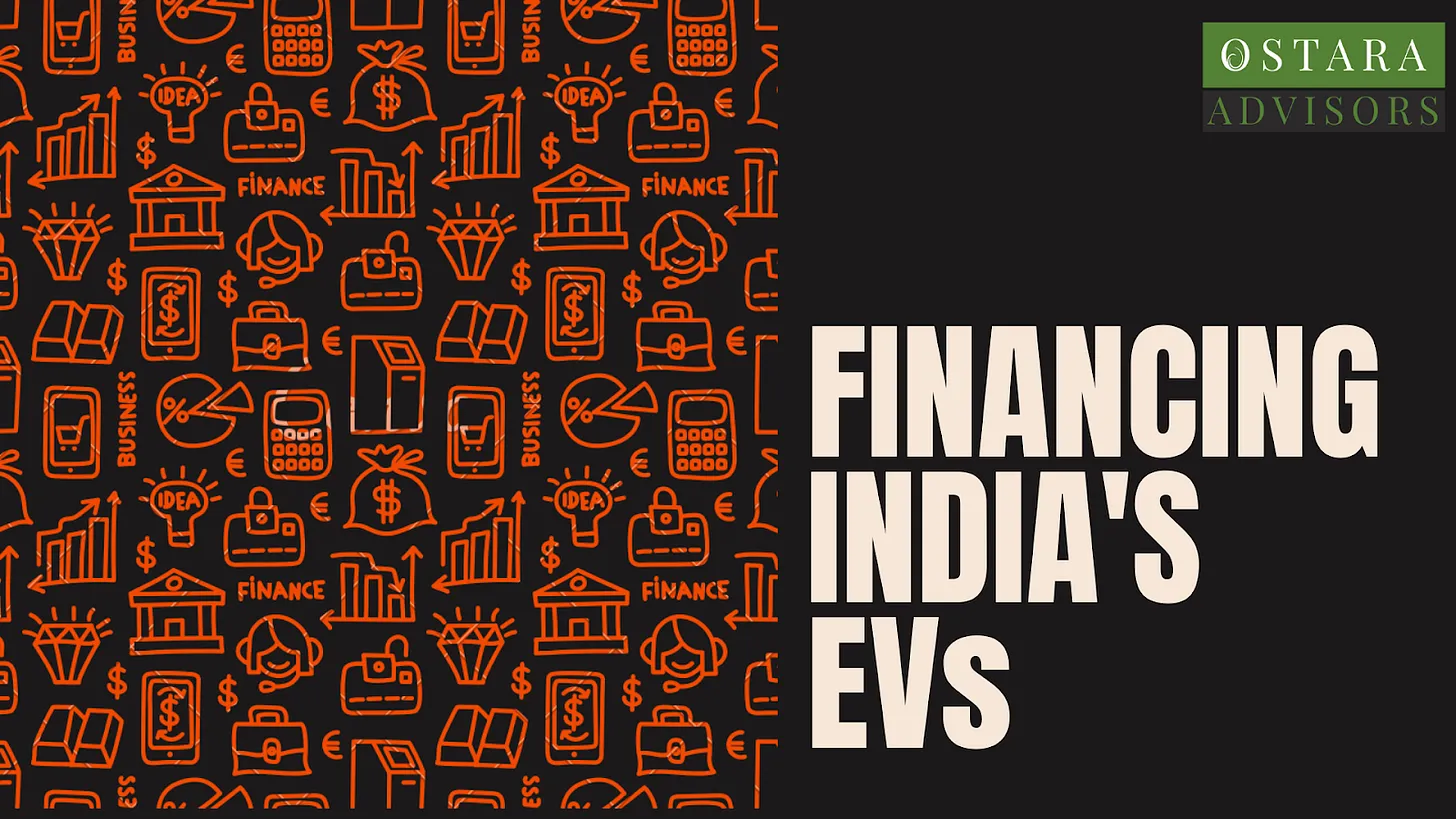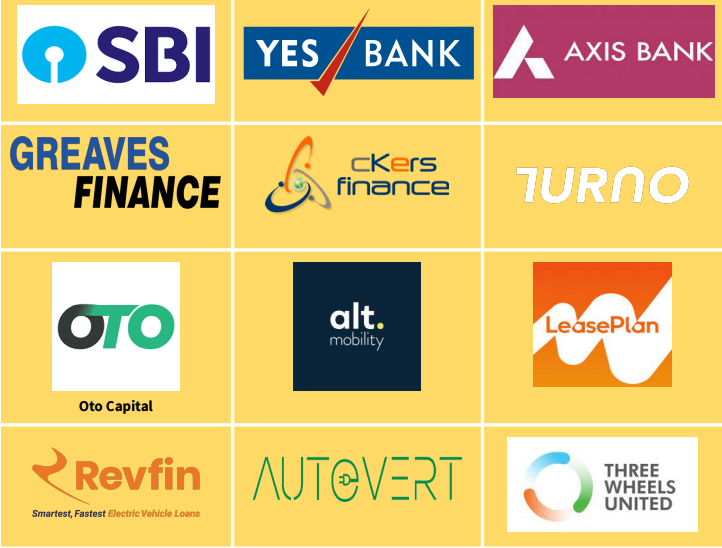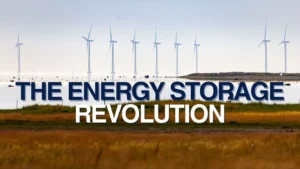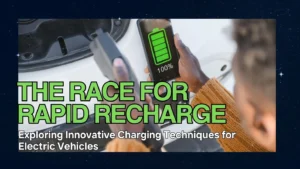Increased consumer interest in electric vehicles and strong policy support point to a positive growth trajectory for the Indian EV ecosystem. Financing of EVs has continued to remain a challenge both for B2C and B2B customers. Having said that, solutions continue to evolve and we take a look at some frameworks and trends in our two-part series on Financing India’s EVs.
An overview of EV Financiers in India
In India, EV loans are provided by financial institutions such as Banks, where the State Bank of India (SBI) is the frontrunner, offering its “Green Car Loans”, Non-Banking Financial Companies (NBFCs) that include both captive (e.g. Greaves Finance) and non-captive NBFCs as well as Leasing Companies that allow owners to lease electric vehicles instead of owning them, thus encouraging the mass adoption of EVs, including in government and commercial fleets.
EV Financing Frameworks in India:
NBFCs and Specialised EV financing companies in India often assess the loan viability on the following parameters:
- Is the EV being used for personal or commercial use? The latter is often preferred as it is easier to assess the current and projected revenue streams from the product.
- The monthly income that the EV generates i.e. fee revenues or rental income earned by the commercial use of the vehicle.
- The direct costs of running the vehicle and hence, the contribution margin which is left over for covering interest payments on the loan.
- Warranty offered by the OEM: This is critical to loan viability as it offers an OEM-backed safety net for the financier to cover product and battery risks. This is especially important as EVs lack vast historical data on vehicle performance and quality.
- Service Network offered by the OEM or fleet operator: This is important as it determines the vehicle uptimes and hence, revenue generating ability of the EV. The better the service network, the lower the downtime and hence, the greater the revenue generation by the EV.
Although electric 2-wheelers have the greater market share, those used in last-mile logistics present a higher financing risk, given concerns around daily uptime and reliable after-sales service networks, both of which impact the revenue-generating ability of the e2W. In comparison, the electric three-wheeler (L5) offers a more viable financing option.
A general misconception surrounding EMI and loans is that they are only dependent on the interest rate. While the interest rate is a contributing component, tenure is the bigger factor. In the case of L5 vehicles, the tenure is around 3 years, which helps bring EMIs down as compared to shorter-tenure e2W loans.
The cKers perspective:
cKers Finance is a specialised Sustainability finance company that operates in the rapidly growing segments around clean energy and resource efficiency. Launched in 2017, it is developing new instruments for providing finance to electric vehicles, among other segments, and building data around risk metrics for these sectors. cKers have financed over 4000 electric vehicles in India so far, of which ~1000 are L5 three-wheeler loaders and bulk of them are financed to B2B fleet customers.
To understand the financing frameworks applied by the EV-focused NBFCs, we spoke with Deepak Gupta, Head of Business Development at cKers Finance Private Limited.
Unit Economics for e2W and e3W used for commercial applications
For a typical e-2W, average monthly revenue earned in a commercial use-case is in the range of Rs. 18,000-20,000 and the average direct cost per month comes to ~Rs. 16.000, including driver salary, charging, parking and maintenance costs. The ability of an e2W fleet company to service their monthly loan payments, which range around Rs. 1800-2200, will depend on effective cost control as well as revenue maximisation.
In comparison, monthly revenue earned by an electric 3W, deployed for last mile logistics or a similar commercial use-case, is in the range of Rs. 36,000-38,000, with the average direct costs in the range of Rs 20,000-23000, including driver salary (~Rs 18,000), charging, parking and maintenance costs. The leftover sum amounts to ~ Rs 13,000, which is utilised for the monthly loan payments. Most leading e3W brands also tend to offer better after-sales service networks leading to improved vehicle uptimes, and hence better revenue generation.
Financing Models:
Financing frameworks for an EV OEM include the Asset Financing and the Order Financing model. In the former, the borrower leverages its assets to take a loan and in the latter, the working capital financing is provided on the basis of the orderbook of the borrower.
Asset financing provides loans for both B2B and B2C segments. The B2C segment in turn, has three separate segmentations:
- Attachment Model: The financier provides a loan to the driver for the EV and the driver is also provided work opportunities in a company which the financing firm is in partnership with.
- Open Market Captive Model: Clients are fleet businesses with pre-established markets (already captured market/have loyal customers) having ICE vehicles and intending to transition to EVs.
- Open Market Delivery Model: Clients are small vendors and enterprises, in contract with or partnered with local chains and/or big companies with a running ICE fleet, intending to shift to EVs.
Challenges of Financing EVs in India
There are a few challenges in the EV financing domain, which can be broken down into three major categories:
- OEM and Technology ChallengeFor decades, automotive OEMs have found the captive financing sector to be both reliable and profitable. However this model is being challenged today by the emergence of EVs, regulatory reforms, financial digitisation, and other challenges.
- Policy ChallengeDespite strong policies such as FAME-II and various other government schemes to increase EV adoption, smooth execution and awareness of these policies will alleviate the financing challenge.
- Resale ChallengeUnlike ICE vehicles, resale value of EVs is not established due to lack of lifetime usage data of the vehicle, battery residual value and uneven OEM warranties in certain categories like e2Ws and e3Ws.
Solutions
The good news is, all isn’t lost. With certain measures, the Indian EV Financing sector will be able to mend the chinks in its armour. A few them can be:
- Priority sector lending (PSL): The Reserve Bank of India (RBI) requires 40% of net bank credit to be deployed towards priority sectors. Inclusion of EVs in PSL guidelines would incentivise banks to increase lending towards the sector.
- Secondary market development: Industry-led buyback programmes and battery-repurposing schemes will help OEMs and the central government catalyse a secondary market for EVs. This would improve the residual value of EVs, providing FIs (financial institutions) with an avenue for resale in case of borrower default.
- Risk-sharing mechanism (government and multilateral-led): Mechanisms and facilities that partly or entirely cover possible losses associated with financing EVs (due to their unclear resale value) can be capitalised at the national or multilateral level. These would distribute risk and provide FIs with an opportunity to build their trust in the sector.
- Risk-sharing mechanism (fleet operator-led): Fleet operators and last-mile delivery companies can leverage their existing FI relationships to provide partial credit guarantees and utilisation guarantees to driver-partners. They could share the risk between stakeholders in case of default and enhance loan availability for delivery drivers.
- Interest rate subvention: Subventions act as a subsidy on commercially offered interest rates, with the government bearing the balance through associated banks. Such schemes would substantially improve the affordability of loans.
- Product guarantees and warranties: Reducing the uncertainty associated with EV models will improve their bankability. OEMs can provide assurances in the form of guarantees (to FIs) and warranties(to buyers) on the performance of their products.
Source: NITI Aayog
Major Players in EV financing in India
Recent Deals And Developments
Oct 2022: Revfin raises $10 million to expand its EV financing presence to 25 states.
Oct 2022: Mufin Green Finance raises Rs 45 crore in its Series A funding from Incofin India Progress Fund (IPF).
June 2022: Turno has raised $3.1 million in funding led by Stellaris Venture Partners and Avaana Capital.
May 2022: EV Financing Startup Three Wheels United Bags $10 Mn To Launch In 10 New Cities
Jan 2022: Investment platform Grip Invest has raised $1 million in a funding round led by its top 200 users, making these users shareholders.


















